TYPES OF ONLINE MARKETING
Online marketing is also known as digital marketing. It has become an essential part of running a successful business nowadays.
In this blog post, we will explore the different types of online marketing and how they can be used to help your business reach its full potential.
TABLE OF CONTENTS
1- SEO (SEARCH ENGINE OPTIMIZATION)
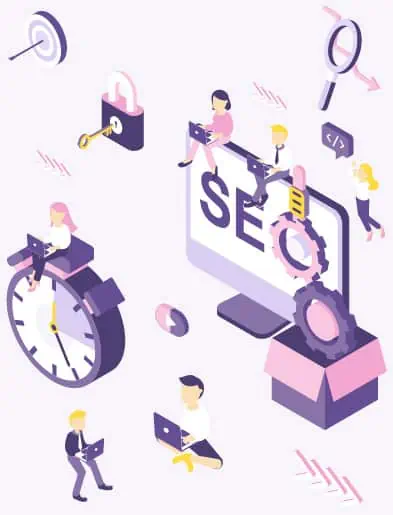
Search Engine Optimization, or SEO, is the process of optimizing your website to rank higher on search engine results pages (Ex. Google, Bing, etc.) for relevant keywords.
This increases your website’s visibility, driving more organic (or you can say UNPAID) traffic to your site.
SEO involves several factors, such as:
-
Keyword research:
Identifying the most relevant keywords for your business and incorporating them into your content.
-
On-page optimization:
Optimizing individual web pages, including title tags, meta descriptions, header tags, and content.
-
Off-page optimization:
Building high-quality backlinks from other websites to increase your site’s authority and relevance.
SEO is a long-term strategy that requires consistent effort, but the rewards are worth the investment. By improving your website’s search visibility, you can attract more potential customers and increase your chances of generating leads and sales.
2 – CONTENT MARKETING
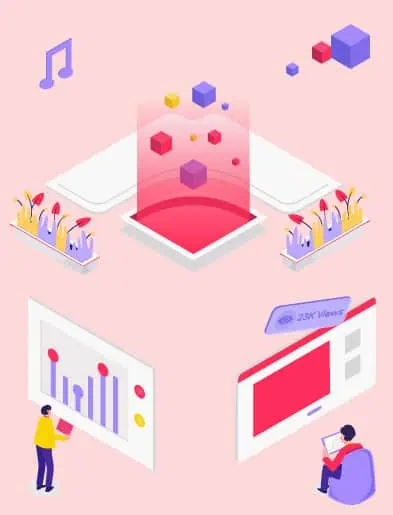
Content marketing involves creating and sharing valuable, relevant, and engaging content to attract and retain a target audience.
The goal is to establish trust and credibility with your audience, ultimately driving them to take a desired action (e.g., making a purchase or signing up for a newsletter).
Content marketing can take many forms, including:
-
Blog posts
-
E-books
-
Whitepapers
-
Infographics
-
Podcasts
-
Webinars
By consistently providing your audience with high-quality content that addresses their needs and pain points, you can position your business as a trusted authority in your industry.
3- SOCIAL MEDIA MARKETING

Social media marketing is the use of social media platforms like Facebook, Instagram, Twitter, LinkedIn, Pinterest, and more to promote your brand, products, or services.
This type of marketing allows you to connect with your target audience, engage with them, and share your brand story.
Effective social media marketing strategies include:
- Posting regular updates and engaging content
- Responding to comments and messages
- Running targeted ad campaigns
- Collaborating with influencers
- Social media marketing can help you increase brand awareness, generate leads, and drive traffic to your website.
4- EMAIL MARKETING

Email marketing is a powerful tool for nurturing leads, building customer relationships, and driving conversions.
By sending targeted and personalized emails to your subscribers, you can:
- Share updates and promotions.
- Provide valuable content.
- Encourage repeat business.
- Boost customer loyalty
Some popular email marketing strategies include:
- Welcome email series.
- Newsletters
- Abandoned cart reminders.
- Personalized product recommendations
5- PPC MARKETING
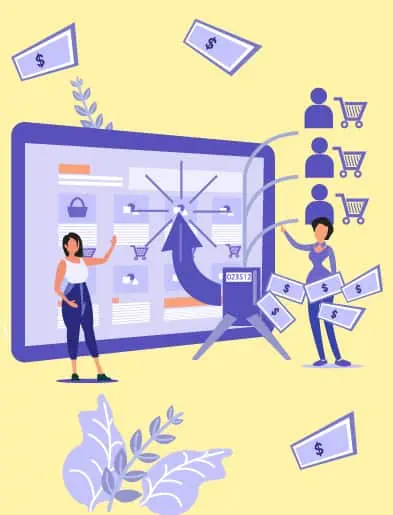
Pay-Per-Click (PPC) advertising is a form of online marketing where advertisers pay a fee each time their ad is clicked.
This type of advertising allows businesses to drive targeted traffic to their website by bidding on specific keywords relevant to their products or services.
Popular PPC platforms include Google Ads and Bing Ads.
The benefits of PPC advertising include:
Immediate visibility:
PPC ads can appear at the top of search engine results pages, providing instant exposure.
Targeted traffic:
You can target your ads to specific demographics, locations, and device types.
Cost-effectiveness:
You only pay when someone clicks on your ad, allowing for efficient budget management.
PPC advertising requires ongoing optimization and management to ensure the best return on investment (ROI). This includes keyword research, ad copywriting, bid management, and performance analysis.
6- AFFILIATE MARKETING

Affiliate marketing is a performance-based marketing strategy where businesses partner with affiliates (individuals or organizations) who promote their products or services in exchange for a commission.
Affiliates use various methods to promote products, such as writing reviews, creating video content, or sharing affiliate links on social media.
Affiliate marketing benefits both the business and the affiliate:
- Businesses gain increased exposure and reach a wider audience.
- Affiliates earn a commission for their promotional efforts.
To succeed with affiliate marketing, it’s essential to choose the right partners and provide them with the necessary tools and resources to effectively promote your products or services.
7- INFLUENCER MARKETING
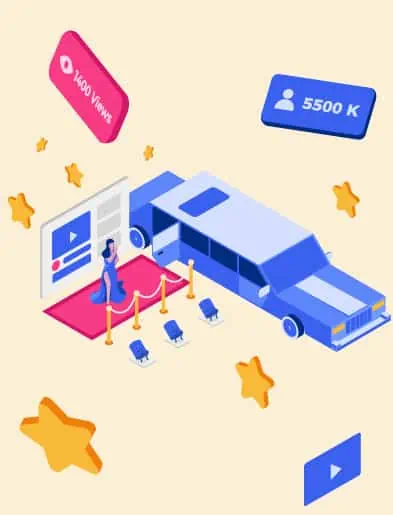
Influencer marketing involves partnering with influencers—people with a large following and strong credibility within a specific niche—to promote your brand, products, or services.
Influencers can help you reach a highly engaged audience by sharing your content or offering product endorsements.
Influencer marketing can take several forms, such as:
-
Sponsored posts
-
Product reviews
-
Giveaways
-
Takeovers on social media platforms
When selecting influencers, it’s crucial to choose individuals who align with your brand values and target audience.
Additionally, ensuring authentic and transparent collaborations is key to maintaining credibility and trust with your audience.
8- VIDEO MARKETING
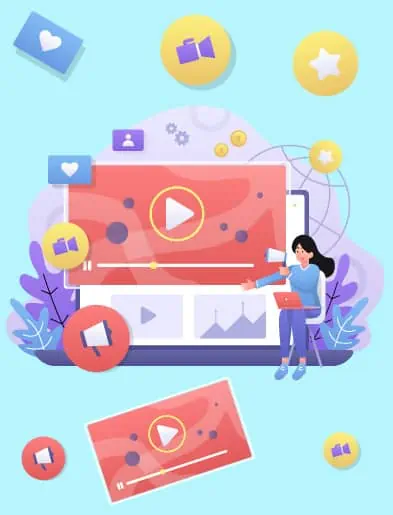
Video marketing is the use of video content to promote your brand, products, or services.
Videos can be a powerful tool for engaging your audience and delivering your message in an easily digestible format.
Some popular video marketing formats include:
-
Product demonstrations
-
How-to videos
-
Customer testimonials
-
Webinars
-
Animated explainer videos
Video marketing can be leveraged on various platforms, such as YouTube, Facebook, Instagram, and LinkedIn.
To maximize the impact of your video content, optimize it for search engines, and promote it through your other online marketing channels.
9- MOBILE MARKETING

Mobile marketing involves reaching your target audience through their mobile devices, such as smartphones and tablets.
As mobile device usage continues to grow, it’s essential to optimize your marketing efforts for this channel. Some mobile marketing strategies include:
Responsive web design:
Ensuring your website looks and functions optimally on various devices and screen sizes.
Mobile apps:
Developing a branded app to enhance user experience and engagement.
SMS marketing:
Sending targeted text messages to subscribers with promotions or updates.
Location-based marketing: Using geofencing or beacons to send targeted messages or offers to users when they are in a specific location.
10- RETARGETING & REMARKETING

Retargeting and remarketing involves displaying ads to users who have previously interacted with your website or content.
This strategy allows you to stay top of mind with potential customers and increase the likelihood of them returning to your site and converting.
Retargeting can be implemented through platforms like Google Ads and Facebook Ads, using tracking pixels
KEY TAKEAWAYS
In this blog post, we have discussed the different types of online marketing strategies that can help your business thrive in the digital landscape. Here’s a summary of the key takeaways:
SEO:
Optimize your website to rank higher in search engine results and drive organic traffic.
Content Marketing:
Create and share valuable content to attract and retain a target audience, building trust and credibility.
Social Media Marketing:
Use social media platforms to promote your brand, engage with your audience, and increase brand awareness.
Email Marketing:
Send targeted and personalized emails to nurture leads, build customer relationships, and drive conversions.
PPC Advertising:
Bid on specific keywords to drive targeted traffic to your website, paying only when your ad is clicked.
Affiliate Marketing:
Partner with affiliates to promote your products or services in exchange for a commission, increasing exposure and reach.
Influencer Marketing:
Collaborate with influencers to reach a highly engaged audience and enhance your brand’s credibility.
Video Marketing:
Leverage video content to engage your audience and deliver your message in an easily digestible format.
Mobile Marketing:
Reach your target audience through their mobile devices, optimizing your marketing efforts for this channel.
Retargeting and Remarketing:
Display ads to users who have previously interacted with your website or content, increasing the likelihood of conversions.
By understanding and implementing these online marketing strategies, you can boost your brand’s online presence and drive growth for your business.
Generated, Edited, and Composed by Jawad Waheed,
Director of Business Development,
Beyond Borders.
